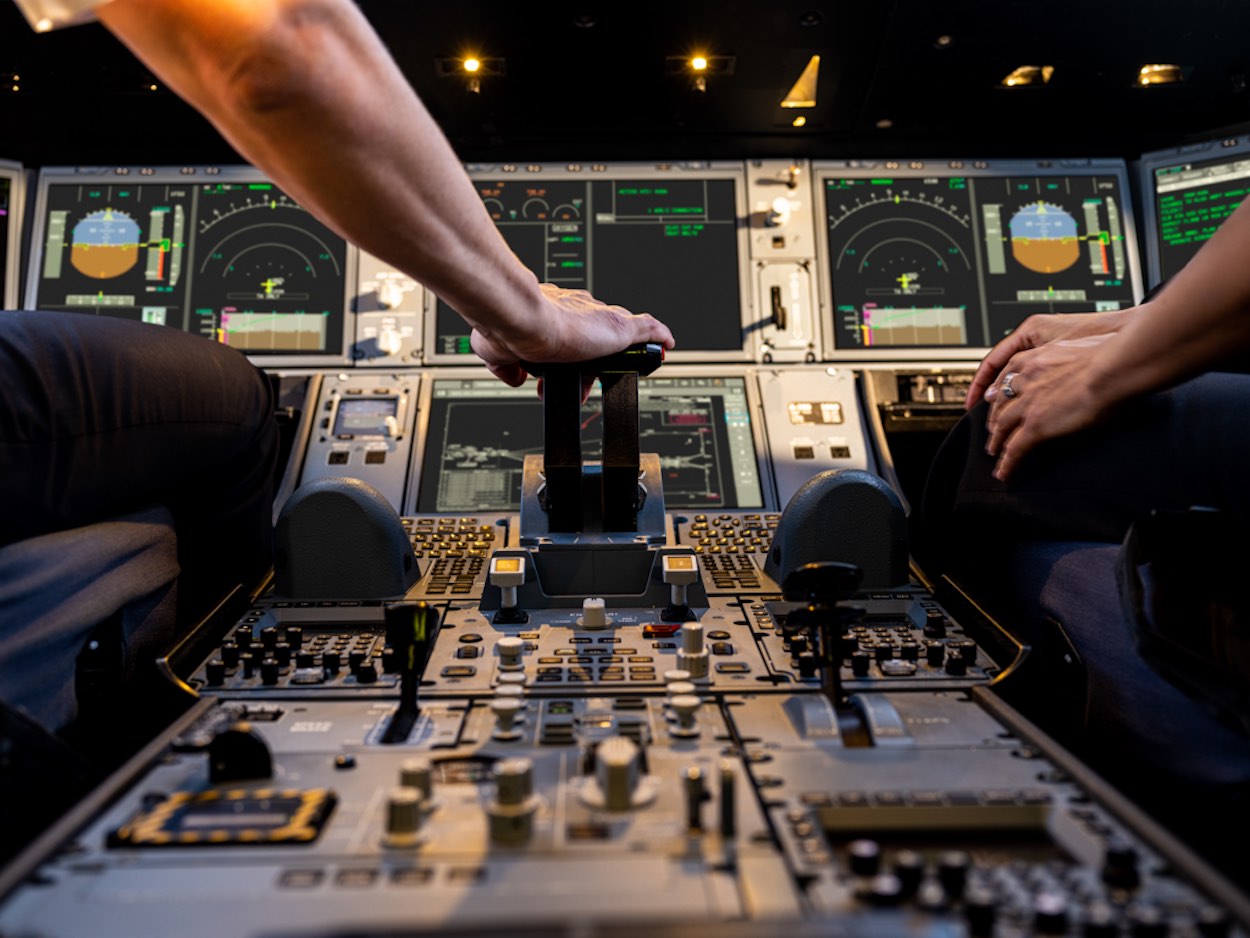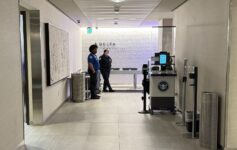
A Delta Air Lines transatlantic flight from Sweden was canceled after one of the pilots failed a breathalyzer test. If she was over the limit, should she be forced to pay for all the compensation Delta now incurs from her own pocket?
Delta Pilot Fails Breathalyzer In Stockholm—Should She Personally Pay Passenger Compensation?
First, let’s examine the particulars of the incident that occurred this week, and then I will speak more generally about pilots and drinking.
This incident occurred on Delta flight 205 from Stockholm Arlanda (ARN) to New York (JFK) on Tuesday, July 22, 2025. About an hour before scheduled departure time, Swedish authorities boarded the aircraft to perform a random breathalyzer test on the crew. One of the pilots failed, and police immediately arrested her, forcing Delta to cancel the flight.
A police operation took place at Arlanda Airport on Tuesday morning. At 09.15, a pilot was arrested by the police during a check on board an aircraft…
According to the police, the plane was about to take off from Arlanda when the arrest took place…
The police do not want to go into the gender, nationality or age of the arrested pilot [but] it is a female pilot from the United States.
Delta’s operations are limited in Stockholm, but it is a hub for its SkyTeam and future joint venture partner SAS. To the extent possible, passengers were rerouted to their final destinations.
In an interesting twist, when she was re-checked at the police station, she was found to be under the limit. It isn’t clear if that extra time between the airport and station gave her body more time to pass the alcohol or whether the handheld breathalyzer was faulty at ARN. For that reason, the next section is more a general discussion.
Should Pilots Personally Pay For These Delays?
Is it fair to say that we must know our own bodies?
Per Harvard Health, women generally experience higher and more prolonged effects of alcohol compared to men due to biological differences, including less body water, higher body fat percentage, and lower levels of enzymes that metabolize alcohol.
I strongly doubt that this pilot was “drunk” or “intoxicated.” I don’t think she was a threat to anyone onboard.
But (if) she ran afoul of the law, which is clear and is meant to protect the public by discouraging pilots from even approaching a state of intoxication.
Is it too much to ask that pilots refrain from drinking the night before they fly, even if many (if not most) can “handle it” just fine and show no discernible effects the following morning?
I feel bad for the pilot…maybe she just had one beer with her fellow crewmembers and then went to bed. She probably never thought that a glass of wine or beer would linger for so long. But I do feel worse for the passengers who were stranded in Stockholm.
Each passenger is due at least €600 in delay compensation under EU261 if they arrived at their final destination more than six hours late.
Should Delta pass that bill onto the pilot who had too much to drink, even if it was only one drink?
Would that be an effective deterrent to discourage pilots from drinking?
Or is there something else going on, like a strong mouthwash perhaps with alcohol content that may have registered in this test?
CONCLUSION
With a blood alcohol content limit of only 0.02 in Sweden (and many other jurisdictions), I suspect a lot of pilots would get arrested if every pilot had to undergo a check before every flight. Unlike the Delta pilot out of Scotland last year, it does not seem that this was a dangerous situation. Even so, these guardrails are to prevent pilots from testing the limits and I wonder if forcing pilots to pay up for errors in judgment would be an even more effective way to ensure such errors do not happen in the first place.
> Read More:Delta Air Lines Pilot Jailed In Scotland
Image: Delta// Hat Tip:View From The Wing




No, Sweden should compensate Delta or the passengers. The pilot was found to be legal when she was tested on the more accurate machine at the police station. Handheld ones are less accurate. In my state, all handheld results are checked again at the station if there’s an arrest.
@derek … +1 . Good points .
@derek: Isn’t another explanation that she was about at the limit and by the time the police station test occurred, it was finally out of her?
The legal limit in the EU for pilots is very low, 0.02%, much lower than drivers. Likely someone who is 0.023% is not impaired.
Upon further review, the pilot should be punished. I looked up the blood alcohol level after drinking one beer. It’s between 0.015 and 0,03 depending on the person and if the beer has common alcohol levels, not high alcohol levels. It’s metabolized at roughly 0.015 an hour.
There is no excuse to be over the limit in a pilot. They should not be drinking a lot before a flight. One beer or one drink the evening before is enough. With the 12 hour limit before a flight, even 2 drinks before the time limit will be metabolized.
Ridiculous to punish for such a low reading . Lack of sleep or fatigue or pep pills are far more ominous than 0.02 % The article does not specify the time of the flight .
Anyway , I have been known to have wine with breakfast , and prohibition was repealed long ago .
The legal limit for drivers is the same for pilots…0.92%. I speak from experience there.
I think you mean 0.02%. At 0.92% most humans would be comatose, or dead.
It doesn’t seem unreasonable to me that pilots and cabin crew should have a BAC of zero when they show for work. Yeah, I know the argument about sleep deprivation being just as bad. That’s all the more reason to abstain completely from alcohol before you report for duty.
Perhaps the best solution is to have the more accurate breathanalyzer at a secure checkpoint at the airport. The handheld ones would be used on the airplane, and any member of the aircrew testing positive could immediately be tested without the delay going to the airport.
However, in no instance is Sweden liable. It can set whatever limit it wants and if someone fails it, that person fails it. A limit is a limit and not flexible – otherwise you get into an argument as to whether 0.02, 0.023, 0.028, 0.031, etc., is when the person cannot fly. The issue raised here is whether the employer (Delta) or the offending employee (pilot) is responsible for the mandated compensation for later arrival.
Certain products like mouthwashes contain alcohol. The human gut can create alcohol if you eat sugary food. These are some of the reasons the limit is not zero.
I think the real question is did she stop drinking at least 12 hours before the flight? If she had one beer at 8pm and went to bed, I find it hard to believe she’d fail a breathalyzer test. But if she had a beer or two at 11pm and then went to bed, then it is much more likely that she would have failed.
Another danger would be lack of sleep .
It’s a false equivalence. We all sleep poorly on occasion, particularly when traveling, but alcohol intoxication is 100% avoidable – abstain.
I’ve known military helicopter pilots who would get ‘soused’ , and their alcohol never caused me concern to fly as their passenger . It was the helicopter itself that I never trusted . I’d rather have a smooth pilot , than a helicopter any day .
No , the pilot ought not pay . She was smooth by that time , and could handle the flight , unless she had not gotten any sleep .
Strongly disagree with the suggestion. I think it’s understandably tempting to take a punitive approach, but I fear history has taught us with alcohol that may be unintentionally counterproductive.
I would be concerned, for instance, that the threat of a ruinous $150,000 penalty might *disincentivize* a pilot from standing down from flying too close to the flight. Imagine a hypothetical (which sounds like not the case here!) that a pilot is at the airport but starts to feel they may not be safe to fly — would they be willing to pull themselves knowing that they could incur a $150,000 fine? You could argue they’ve made their mistake already and have to live with it, but at the end of the day, only thing that really matters is the safe result.
I think you raise a very reasonable point!
The BAC ( blood alcohol content ) would be a more accurate way to confirm the legal culpability here. I have a strong opinion that pilots should be fit and responsible for their choices. Consuming alcohol in any amount while on a layover is a poor choice.
I remember when I used to work in Sweden. One morning on the way to work I was stopped for a random breathalyzer test (I passed).
But I knew of a contractor there one time who drank beers into the night who failed a similar experience. 0.02% ain’t much.
@Matthew:
You mentioned a delay of six hours? From my experience, when your flight is cancelled you’re automatically eligible for the compensation. Even if the alternative arrives earlier.(?)
(As long as it’s not Force Majeure, where you’re never eligible for compensation.)
https://eur-lex.europa.eu/legal-content/EN/TXT/?uri=CELEX:32004R0261
As I understand articles 5 and 7, compensation can be reduced if the passenger is rerouted.
If not over the limit, the Swedish police are the ones who should pay as they conducted a faulty test
If she had a beer the night before and was still over the limit, it is not going to magically get under the limit in the short time from the plane to the police station. This reeks of a bad test
I think the Pilot should be sent to rehab and once she returns back to work she should automatically take a breathalyzer before every flight. She needs to realize how dangerous it is to drink while intoxicated.
At most US flag carriers, if the pilot has a substance/alcohol problem and either self discloses or accepts intervention BEFORE getting caught boarding a flight under the influence, accepts help AND continues to abstain, then there’s no FAA nor airline issues. However, she was tagged on or about to board the aircraft. FAR § 91.17 states the following: (a) No person may act or attempt to act as a crewmember of a civil aircraft— (1) Within 8 hours after the consumption of any alcoholic beverage; (2) While under the influence of alcohol; (3) While using any drug that affects the person’s faculties in any way contrary to safety; or (4) While having an alcohol concentration of 0.04 or greater in a blood or breath specimen. Alcohol concentration means grams of alcohol per deciliter of blood or grams of alcohol per 210 liters of breath. She was in violation of NUMBER ONE right off the bat! Note…there is NO LIMIT stated. EIGHT HOURS period. My personal limit is 10 hours. She can say “goodbye” to her job, her pilot certificate and will never get an airline job (at least at my company) again. That 10 year background check will toss her butt out.